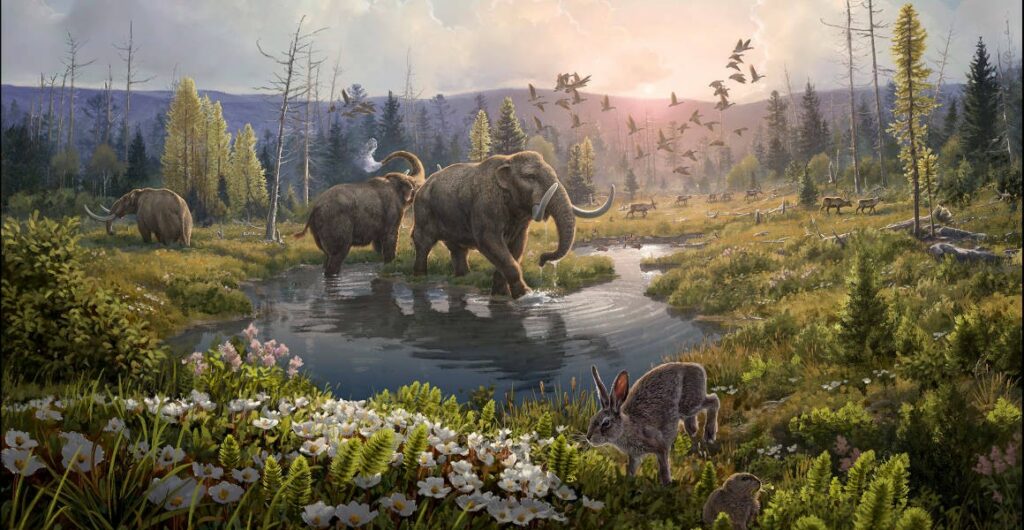DNA fragments recovered from ice in northern Greenland have broken the record for the oldest discovered, opening a window into understanding the ancient ecosystem that once existed on what is now a polar desert.
A team of Danish scientists dated the samples of animal and plant DNA they recovered from the geological formation Kap København to around 2.4 million years ago, some 800,000 years older than the Siberian mammoth DNA that previously held the record, reported Nature on Thursday. Older sequences could perhaps still be found.
The DNA, from more than 135 different species, is known as environmental DNA, or eDNA, and was preserved due to a combination of the site’s soil composition and the extreme ice-age temperatures that started around 2.5 million years ago.
Fossil remains and preserved pollen had already been found at the site, discovered some 40 years ago, and helped to build a picture of how the site would have been in the past, but traces of vertebrates were uncommon. Researchers had previously estimated that small fragments of DNA could have survived, based on fossils found elsewhere, but attempts to sequence it had been unsuccessful, until now.
Teeming with life
Sequencing this DNA helped the team to identify the animals and plants that once inhabited the area and unlock insights into the ancient ecosystem living in what is one of Greenland's northern extremities, protruding into the Arctic Ocean, now covered in snow and ice.
It has been described as a 'polar Sahara', where almost no life of any significance can be detected. However, 2.5 million years ago it would have been a forest of willow and birch trees teeming with life, supporting herbivores that would be recognisable to people living on the planet today, such as hares and deer.
"The Kap København ecosystem was a mix of Arctic and temperate species, and has no present-day equivalent," Professor Mikkel W. Pedersen, who is one of the lead authors of the study published in Nature, said.
"It existed at considerably higher temperatures than we have today, and its climate seems to have been similar to that we expect on our planet in the future due to global warming."
Related News
- Humanity has become 'weapon of mass extinction', UN warns
- Wallonia to create 30 new nature reserves in eco-preservation push
The most surprising discovery was the presence of the mastodon, an extinct elephant-like animal which was shorter and stockier than a mammoth, and was previously only linked to continental North America. It is possible they may have crossed over ice sheets that no longer exist between the continent and Greenland, or perhaps they swam.
While researchers noted it is reasonable to assume that carnivores were present, no DNA of this kind has been recovered from the site, "probably because predatory animals are rarer in food chains," Eske Willerslev, who also led the study, noted. "I predict that further sequencing could uncover the DNA of carnivorous animals."

